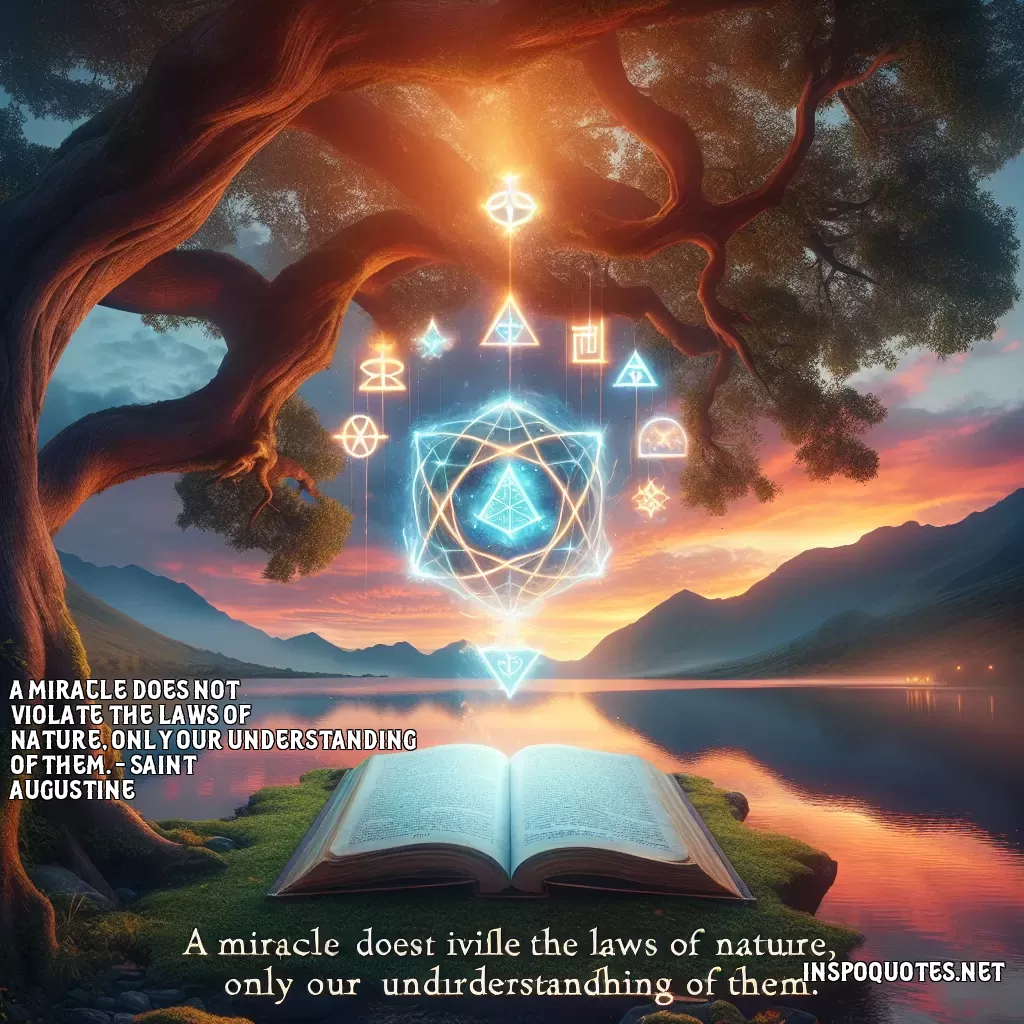
A miracle does not violate the laws of nature, only our understanding of them. - Saint Augustine
Author: Saint Augustine
👁️ 9 views

A miracle does not violate the laws of nature, only our understanding of them. - Saint Augustine
👁️ 9 views
Saint Augustine's quote, "A miracle does not violate the laws of nature, only our understanding of them," invites us to reconsider our perception of the miraculous. The statement suggests that what we perceive as miraculous events do not inherently contravene the fundamental principles of the natural world. Instead, they challenge or exceed the limits of our current knowledge and understanding of these principles. At its core, the quote emphasizes human limitations in comprehending the vast complexities of the universe. Often, an occurrence deemed a "miracle" might simply reflect our lack of understanding rather than a breach of natural law. Augustine proposes that miracles serve as a reminder of the mysteries that still elude scientific and philosophical exploration. This perspective encourages humility and openness towards the unknown, rather than rigid skepticism. Furthermore, the quote can be seen as an invitation to deepen our exploration of the natural world, rather than dismissing inexplicable phenomena outright as impossible. It aligns with the idea that the universe is intricate and interconnected in ways that we, as humans, may not yet fully grasp. By bridging the gap between science and spirituality, Augustine's words suggest a harmony between faith and reason. This perspective encourages continuous questioning and learning while acknowledging that our current understanding is always subject to growth and reevaluation. In essence, Augustine's view does not diminish the wonder of miracles but rather reframes them as a testament to the boundless richness of creation.
Quote By: Saint Augustine
Saint Augustine of Hippo (354–430 AD) was a prominent Christian theologian and philosopher whose writings profoundly influenced Western Christianity and philosophy. Born in North Africa, he initially led a hedonistic lifestyle before converting to Christianity after a profound spiritual experience. Augustine is best known for his works such as "Confessions" and "The City of God," which explored themes of grace, free will, and the nature of God, establishing him as a foundational figure in the development of Christian thought.
Bio added on: 2025-02-17 20:25:01